-
U.S. Special Forces kill al Shabab leader in Somalia, capture al Qaeda fugitive in Libya
A Navy SEAL team attacked – and, in all likelihood, killed — a senior al-Shabab leader in an early Saturday raid on his seaside villa in the Somali town of Baraawe, 150 miles south of the capital Mogadishu. American officials said the raid was in response to the militant group’s attack on the Westgate shopping mall in Nairobi three weeks ago. This was the most significant raid by American troops on Somali soil since commandos killed Saleh Ali Saleh Nabhan, a Qaeda mastermind, near the same town in 2009. In a separate raid, U.S. commandos captured Nazih Abd al Hamid al-Ruqhay, known by his nom de guerre, Abu Anas el-Liby, a senior leader of al Qaeda indicted in the 1998 bombings of the United States embassies in Kenya and. The capture ends a 15-year manhunt. El-Liby, since 2000, has been high on the list of the U.S. government’s most-wanted list, and the FBI had placed a $5 million reward on his head.
-
-
Shots exchanged near Capitol Hill, suspect – a woman -- hit
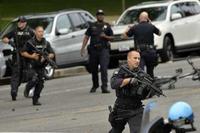
Shots were exchanged around 2:15 p.m. this afternoon outside the Hart Senate Building on Capitol Hill between police officers and a lone gunmen. Congressional buildings on both the Senate and the House side were placed under lock-down for about an hour. The lock-down was lifted at 3:00p.m. Police said the fire was exchanged between police officers and a woman in a black car, who had earlier was driving suspiciously near the White House. She sped away from the White House when police approached her, and sped toward Capitol Hill.
-
-
Terrorism hobbles business investment in north, east Africa
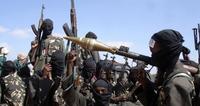
Images of the terrorist attack in Nairobi’s Westgate Mall have reinforced the belief that business investment in those parts of Africa where terrorist groups are active is risky despite improvements in living standards.
-
-
Societies with rigid cultural values produce more terrorists

Examining more than 80,000 terrorist attacks which occurred between 1970 and 2007, researchers find that cultural values and norms which promote rigid thinking are related to a greater number of terrorist attacks or fatalities. Societies that have the belief that one’s destiny and life events are predetermined (fatalism), have very strong norms and severe punishments for deviation from norms (cultural tightness), and those that privilege masculinity and have very distinct gender roles (low gender egalitarianism) have higher terrorism rates than those that are low on these dimensions.
-
-
Violent hate crimes, lone-wolf terrorism share characteristics
Researchers examined the timing, locations, methods, targets, and geographic distributions of lone-actor terrorist attacks, group-based terrorist attacks, and violent hate crimes that occurred in the United States between 1992 and 2010. They found that locations where the 101 lone-actor terrorism incidents occurred shared more demographic similarities with the locations of the 46,000 violent hate crimes than with the locations of 424 group-based terrorist attacks over the time period.
-
-
Boko Haran Islamists kill 78 college students

Boko Haram, the name of the Nigerian Jihadist Islamist insurgency group, means “Western Education is Sinful.” True to its name, the group has routinely attacked high schools and colleges in Nigeria, killing a large number of students and teachers. The latest attack came Saturday night, when Boko Haram militants attacked an agricultural college in northeastern Nigeria, killing seventy-eight students.
-
-
Two generals fired for costly Afghanistan failure
Gen. James F. Amos, the commandant of the Marine Corps, yesterday fired two generals for failing properly to protect a U.S. base in southern Afghanistan, allowing Taliban fighters to storm it last year, killing two Marines and destroying a half a dozen U.S. fighter jets. Military historians note that the last two-star general to be fired for combat incompetence was Army Maj. Gen. James Baldwin, who was relieved of command in 1971 under similar circumstances: the North Vietnamese attacked a poorly protected U.S. outpost, killing thirty soldiers.
-
-
Training people to fight terrorism at grassroots
Secretary of State John Kerry, in a Friday speech to the Global Counterterrorism Ministerial Forum, unveiled a new U.S. initiative to address the root causes of violent extremism. The United States will increase its contribution to the Global Counterterrorism Forum, and create two training centers to help train people in fighting terror attacks: one center — the Center for Excellence in Countering Violent Extremism – is already open in Abu Dhabi, and a second, called the International Institute of Justice and the Rule of Law, will open in Malta next year.
-
-
Powerful groups abandon rebel coalition, join Jihadist al Nusra Front
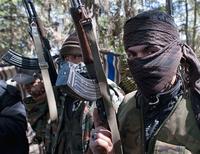
The Syrian rebel coalition fighting the regime of President Bashar al-Assad – its official name is the National Coalition of Syrian Revolutionary and Opposition Forces, and it is led by Ahmad al-Jarba — has suffered a major blow Tuesday when eleven rebel groups, among them some of the most powerful ones in the rebel coalition, announced they were abandoning the coalition and joining forces with al Nusra Front, an al Qaeda-affiliated group. Among the eleven groups are secular groups aligned with the Western-backed opposition’s Supreme Military Council. It thus appears that the move by the eleven groups was motivated less by ideological or religious considerations, and more by an assessment that strengthening the al Nusra-led side among the rebels would be a more effective way to bring down the Assad regime.
-
-
Number of U.S. drone strikes in Pakistan, Yemen significantly reduced
In the past several months, the United States has reduced the number of drone strikes on terrorist targets in Pakistan and Yemen. The United States launched 117 drone strikes in Pakistan in 2010, compared to twenty-one so far this year. Representative Mike Rogers (R-Michigan), chairman of the House Permanent Select Committee on Intelligence, is concerned. “[The threat of terrorism is] not diminishing,” he said. “There have been counterterrorism changes made by the administration that have concerned us all, things that we’ve been working on for a period of months that we’re trying to work through that are very, very concerning. This is no time to retreat.”
-
-
Series of spectacular attacks indicates growing weakness of African terrorist groups: experts
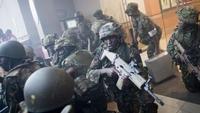
Islamic terrorists in Africa launched a few spectacular attacks this year, the last one on the Westgate mall in Nairobi. Terrorism experts argue, however, that such spectacular attacks may, in fact, be a sign of growing weakness, even desperation, on the part of these terrorist groups, rather than a sign of strength and confidence. These experts say these attacks, and other, smaller ones, may well be the result of the growing challenges these various Jihadi groups face, and an indication that these groups are now on the defensive.
-
-
Al Qaeda increases efforts to defeat U.S. drones
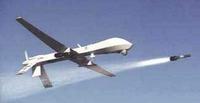
Drone attacks have been an important part of America’s war against terrorism. These airstrikes have considerably limited the movements and operational freedom of al Qaeda operatives and other militants in Pakistan, Afghanistan, Yemen, and Somalia. Al Qaeda has been exploring strategies and experts to allow it to counter America’s drone campaign.
-
-
Kenya mall attack may help terrorists recruit in U.S.
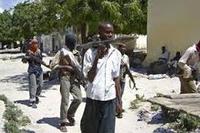
Some security experts believe that the deadly terrorist attack on a Nairobi shopping mall by Somali al Shabab militants is a “great shot in the arm” to the al Qaeda-linked group’s efforts to recruit fighters from the West, including the United States. Al Shabab is believed to have several thousand fighters, among them a few hundred foreigners. Some of those foreigners include recruits from Somali communities in the United States and Europe.
-
-
Three charged in Brooklyn with training to be suicide bombers for al Shabab
Prosecutors say that three men facing federal terrorism charges in New York City have strong ties to al Shabab, the group responsible for the Nairobi mall attack. Prosecutors in Brooklyn describe the defendants — Ali Yasin Ahmed, Madhi Hashi, and Mohamed Yusuf — as “dangerous and influential” members of al Shabab who were part of an elite unit of suicide bombers. They were captured in Africa last year while traveling to Yemen to team up with the al Qaeda offshoot there.
-
-
Egypt bans the Muslim Brotherhood, confiscates group’s assets
Egypt has banned the Muslim Brotherhood, continuing the process of marginalizing the Islamist movement and pushing it out of the country’s public life. A Cairo administrative court on Monday ordered the confiscation of the Brotherhood’s funds, buildings, and assets, and also banned the activities of the Islamist movement’s various spin-off groups. In effect, since early July, when then-president Mohammed Morsi was ousted, the movement has been forced underground.
-
More headlines
The long view
How Male Grievance Fuels Radicalization and Extremist Violence
Social extremism is evolving in reach and form. While traditional racial supremacy ideologies remain, contemporary movements are now often fueled by something more personal and emotionally resonant: male grievance.
